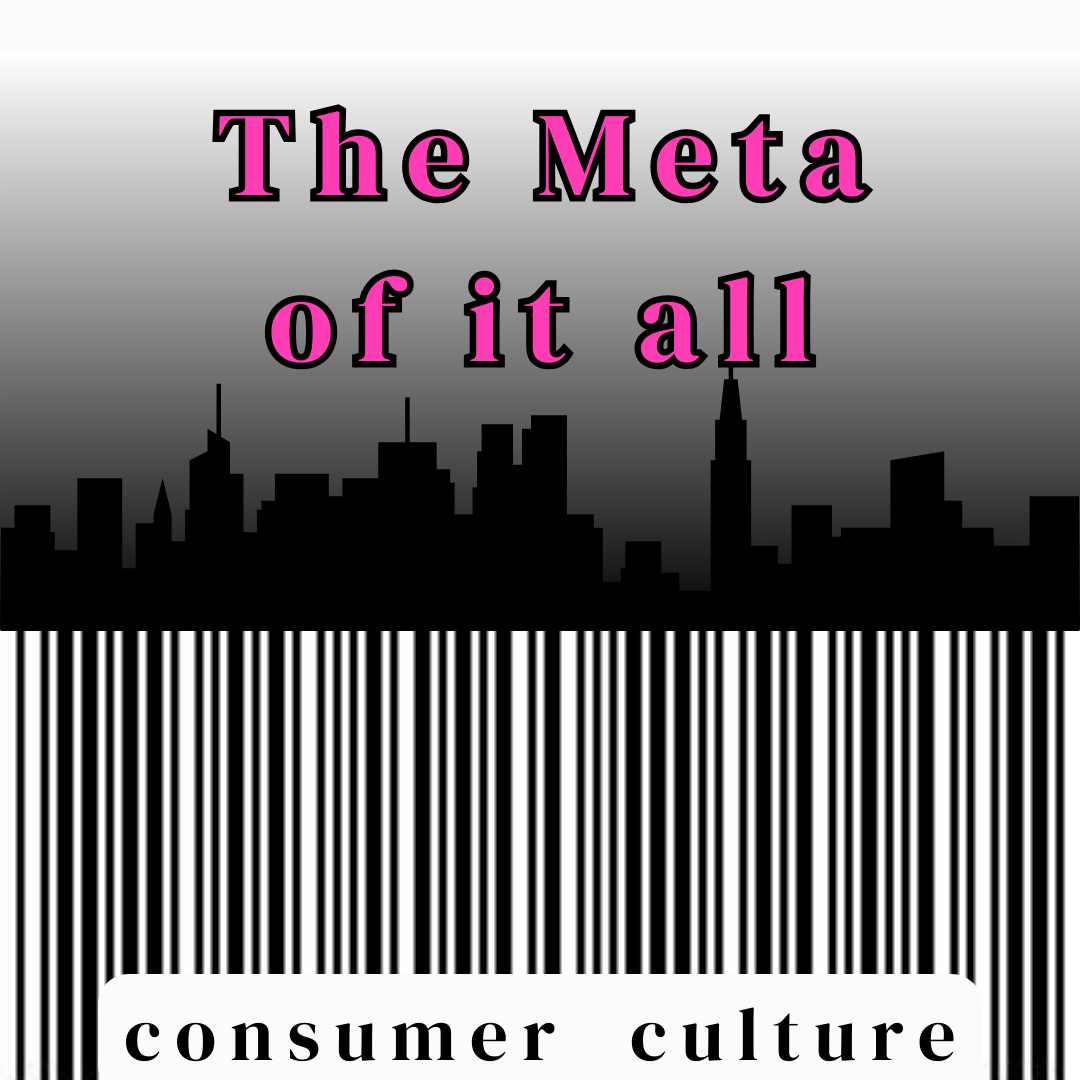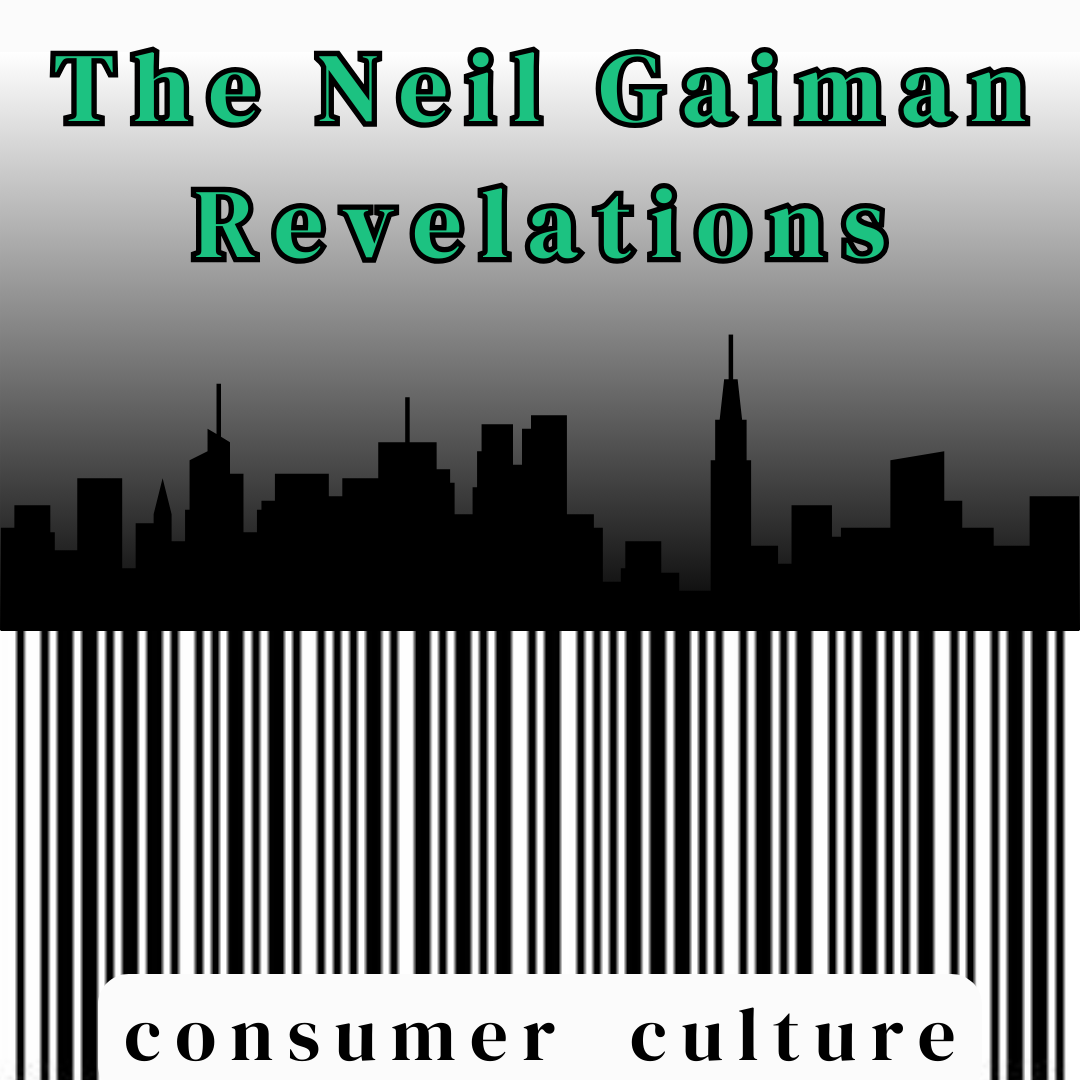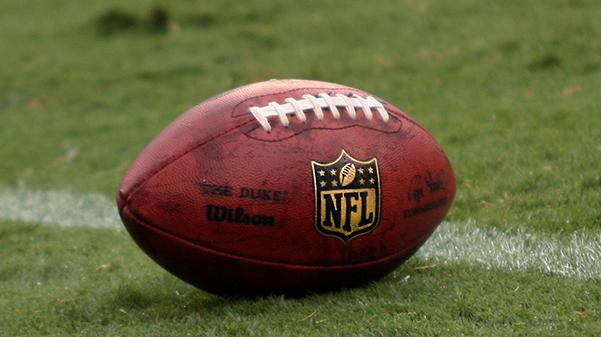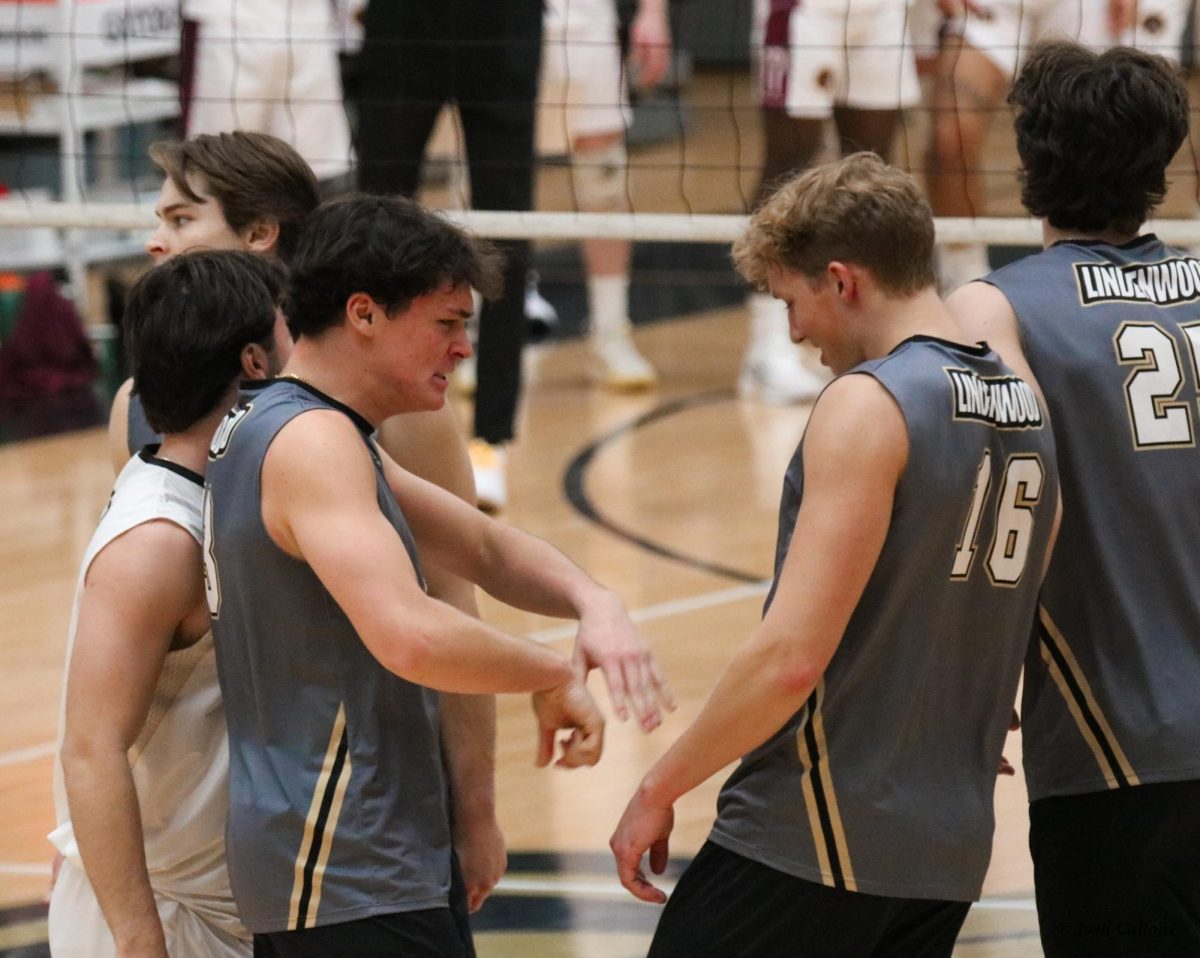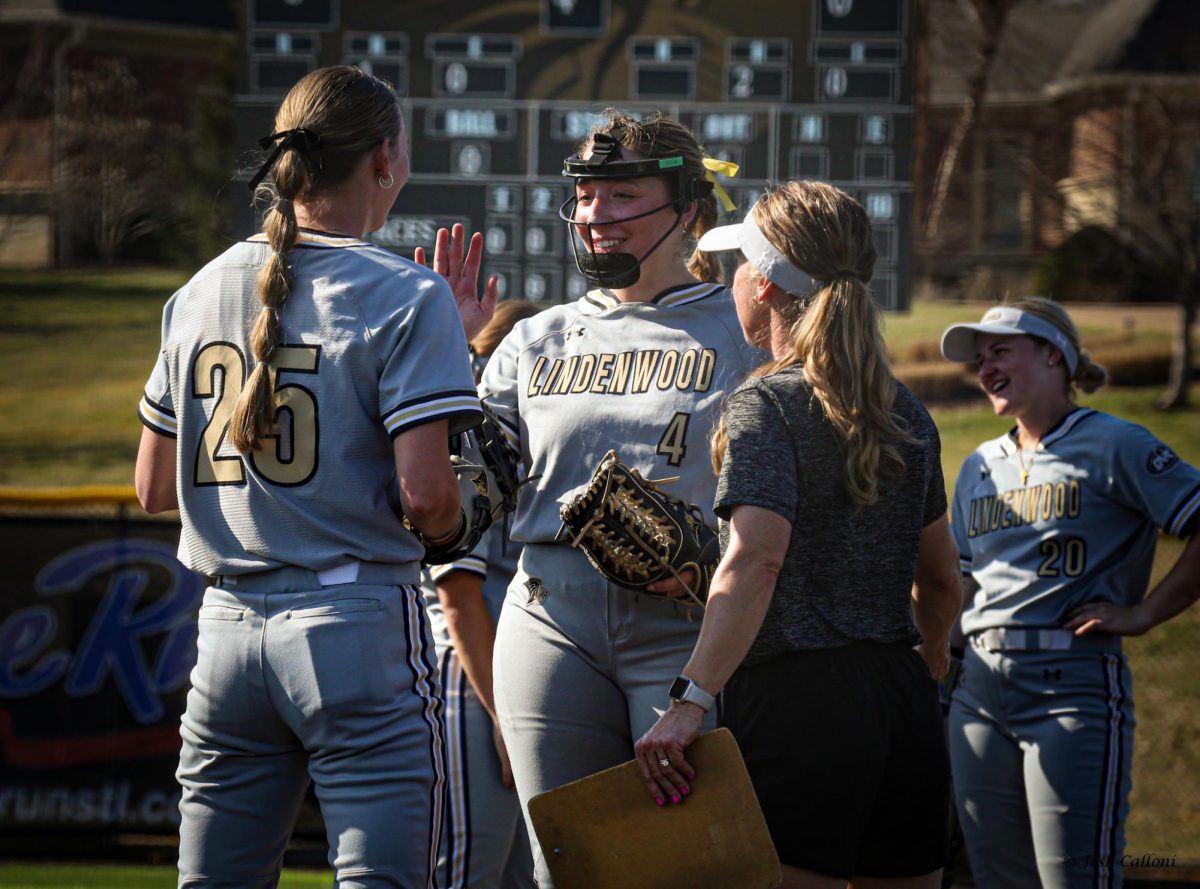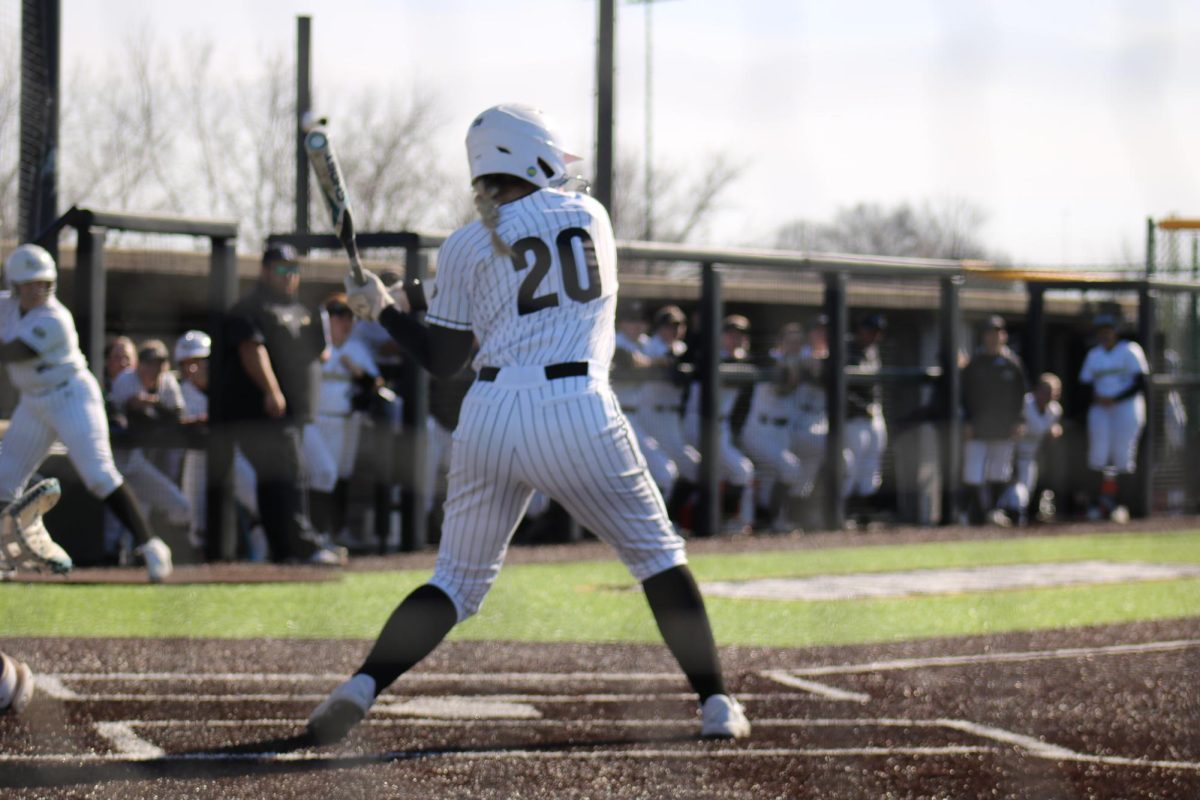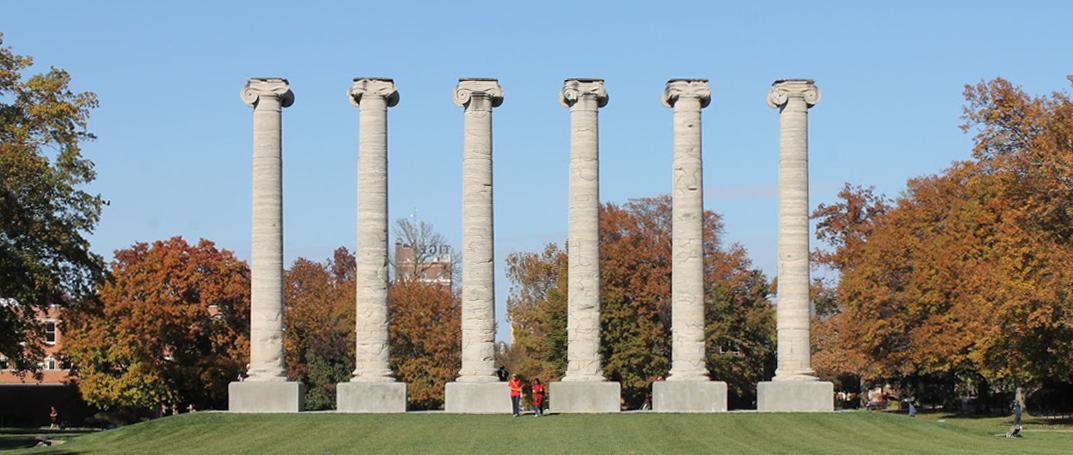
Photo by Viktoria Muench
Brayden Parker | Sports Editor
Nov. 13, 2015; 5:30 p.m.
Clad in all black and walking arm in arm across campus to Owen Field, the University of Oklahoma football team had decided to make a statement. Disgusted by a video that surfaced in early March 2015, depicting members of the University’s Sigma Alpha Epsilon chapter chanting “there will never be a n***** at SAE”, the football players staged a silent protest, skipping practice with the support of their coaches to “to shed light on this issue and promote meaningful change at a national level,” according to a statement released by the student-athletes.
Not concerned about the game they love, not worried about the status of their scholarships, nor distressed about their football program’s image, these young men decided to stand together in support of an idea in which they strongly believed. As one of the country’s premier football programs, the players drew the attention of the nation as they stood united.
Last weekend at the University of Missouri-Columbia, a similar narrative evolved as student groups like Concerned Student 1950 and faculty alike joined protests against the racial culture at Mizzou.
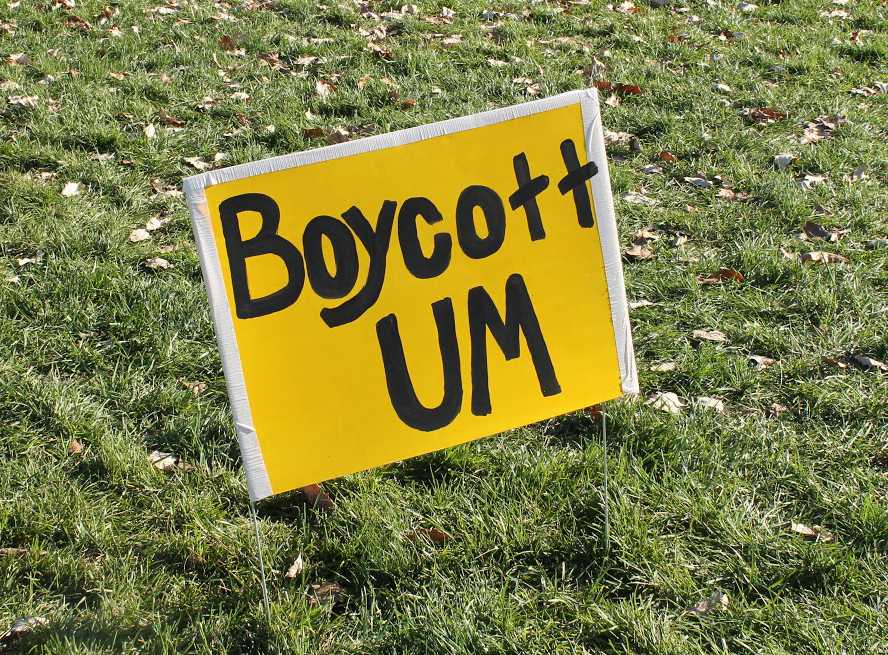
Photo by Viktoria Muench
And then Saturday night happened.
Over thirty black players on the Mizzou football team, playing a dismal season already, tweeted out a statement saying they would not play until “President Tim Wolfe resigns or is removed”. The situation evolved into Sunday morning, where all players met for a team meeting, eventually agreeing to boycott all football activities until Jonathan Butler, the graduate student partaking in a hunger strike, resumed eating. Supported fully by their coaches and the Missouri athletic department, the players, like those at Oklahoma, had come together and decided as a team to tackle an issue that transcends sport.
In recent days, media outlets and social media users have been condemning the players for their boycott, saying they had no basis to take such actions, and that their scholarships should be revoked for potentially costing the University millions of dollars, for further tarnishing the already faltering reputation of Mizzou and for ultimately costing one man his job.
The events of the past weekend have, or should have anyway, caused everyone following the story to look inwardly and reexamine their thoughts on recurring racism, and many other, vital issues. Dissent is one of the apparatuses of human interaction that make the world a beautiful place to live in. While we were all “created equal,” we are not all the same, which allows for each of us to have opposing ideas.
Certainly, that is evident on the campus of Mizzou, and undoubtedly that is the case in the Tigers’ football locker room. In fact, Sunday night ESPN reported that an anonymous player said, “Not everyone agrees with the decision.” This is no surprise. It would be unnatural for 130 people to be in complete agreement about the boycott, just as the city and its students certainly are not. Difference in opinions and ideologies are intellect’s natural diversity.
However, it is our responses towards the other opinions and beliefs that contrast our own that cause tensions if not handled appropriately. When an opposing view becomes seemingly inferior, both sides shut down, and quit talking.
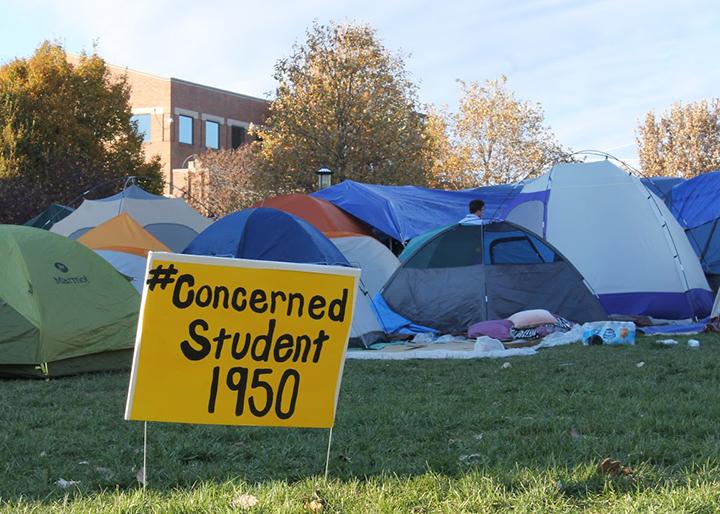
Photo by Viktoria Muench
This breakdown in effective communication seems to have been the catalyst for the hatred and unrest seen in Columbia. Not talking is what moved a system to quietly, internally handle the racial problems. Not talking is what moved a man to feel that threatening his life was the only way to be heard. Not talking is what moved a city to choose sides and begin wailing to break the unbearable silence.
Yet, there was one group in mid-Missouri last weekend that had it figured out and was able to be heard amidst the intolerable noise.
Leave it to a football team, a group of 130 young men and their coaches, to skip the silence, to prevent the yelling, and to simply talk.
For hours on Sunday morning, the team met together inside their training center; while the conversations are unknown, the team emerged from their discussion united in support of Jonathan Butler’s hunger strike. This agreement to stand together as a team does not mean that all players were in agreement concerning the root issue. These athletes were divided black and white. Seniors and freshmen. Offense and defense. Yet, with every barrier between them, they compromised to support not only one another, but to recognizing that lovingly supporting one another was of greater importance than whether they agreed with the protests, or the racial questions that spurred them.
This conversation seemed to progress peacefully. No players quit. No athletes lost their scholarships. Faurot Field did not burn. And although their boycott only sustained two days, they stood in unison throughout and made it to Monday unscathed.
The same cannot be said about the Missouri family as a whole over the past month, and certainly over the past week. Drastically substituting silence with screaming, the campus reached its boiling-point. The effects of this culmination are still being felt throughout the week. Former President Tim Wolfe commented in his resignation speech that “we have to respect each other enough to stop yelling at each other and start listening…unfortunately this has not happened.”
Columbia is my home; Missouri, a place I adore. And the yelling, and the fear since, is utterly heartbreaking. For the sake of the city, hopefully everyone is discovering that having differences is a beautiful thing, but the value is only realized when we respectfully talk about our tension causing differences. It will take compromise. It will take humility. It will take love. But it can, and has, happened.
Typically, sport is for entertainment, to find reprieve from an already tumultuous time. But perhaps the Missouri football team, just like their counterparts in Norman earlier this year, provided those watching with something far greater.
Regardless of whether you find their actions to be appropriate, they showed us all just how effective talking truly is. Just how imperative compromise becomes. And just how far a group of divided people can go, when united together.





